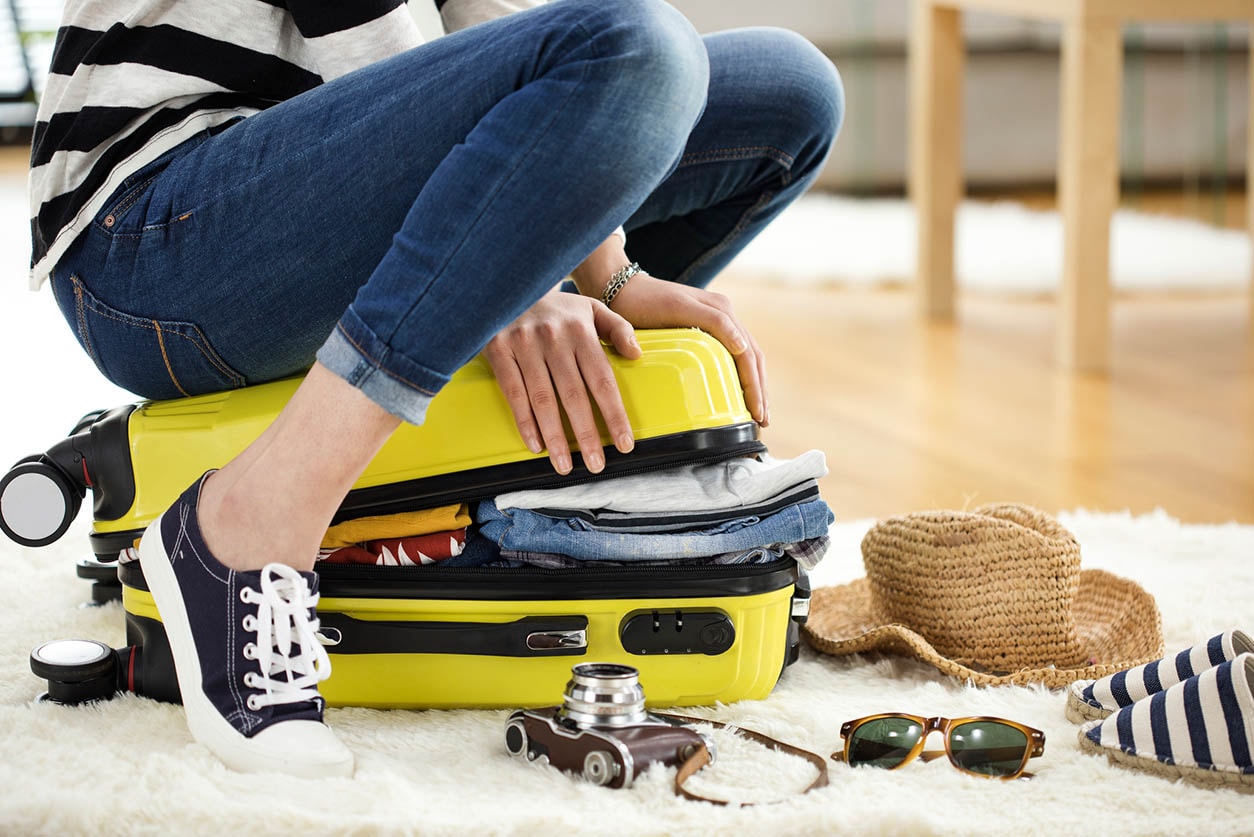5 Min Read | Updated: January 19, 2024
Originally Published: November 30, 2020
How to Travel Alone and Save Money
From travel insurance to budgeting, solo travelers have a lot to consider. Here are a few money-saving tips to help you plan your next solo trip.

At-A-Glance
A growing number of tours and lower-cost accommodation options are designed for people traveling alone.
Smartphone apps can help you get around and find money-saving options without having to hire a guide.
Your travel credit card can be another helpful resource – you can look into redeeming points toward travel and using all its perks.
Traveling alone gives you the freedom to do exactly what you want, when you want. One potential downside: the possibility of a higher cost. Unlike couples, solo travelers can’t split the cost of a hotel room or cab, and many tour operators and cruise lines may charge additional fees if you don’t share a room with someone else.
Fortunately, there are ways to pare down the cost of solo travel. Here are eight tips for saving money when traveling alone.
1. Seek Out Tours for Solo Travelers
A growing number of tour operators and cruise lines provide travel options specifically designed for people traveling alone, including solo room occupancy without the hefty “single supplement” that’s traditionally charged when you don’t share a double room.1 Joining a tour can introduce you to new people and eliminate much of the stress of organizing your own trip. For a more leisurely experience, some cruise operators now have studio cabins that may cost much less than regular double-occupancy cabins.1
2. Use Your Phone as Your Guide
The challenges of traveling in an unknown territory can seem even more daunting when you’re alone. Apps can help you rise to the challenge – without hiring a human guide. Translation apps help overcome language barriers: Point your phone’s camera at a street sign, and the app may help you find out where you are; point it at a restaurant menu to reduce the lottery aspect of choosing what’s for dinner. You can download maps, in English, to help navigate the maze of streets in foreign cities. Other apps aim to connect you with other solo travelers, compare local eating places, find local tours and group events, share rides, and contact local hosts that may put you up for the night.
To get the most from these apps, you’ll likely need mobile data access. Instead of using your U.S. carrier’s often-expensive international plan, you may be able to save money by getting a local SIM card that connects you to a local phone company’s network for a fraction of the price.2 If your phone has an eSIM card, you may be able to select the country you’re traveling to in a dropdown menu to access local networks.3
3. Get the Most Out of Your Travel Credit Card
Travel credit cards can help you cut the cost of your trip by earning points that you can redeem for travel. Depending on the credit card, you may be able to redeem points toward flights, hotel rooms, and tours. When you travel alone, you’ll have more flexibility to use your points exactly how you want. If you have internet access, you may even be able to take advantage of deals that you encounter during your trip. Some travel credit cards also offer money-saving perks like credits for ride-sharing services and a free checked bag on flights.
4. Consider Boutique Hostels
The word “hostel” may conjure up images of cheap dorm-style sleeping quarters. But hostels are changing and in many cases going upmarket – although they’re generally still a lower-cost option to hotels.4 So-called “designer hostels” may have amenities such as:
- Private rooms.
- On-site food and drink options, including restaurants and even cocktail bars.
- Free Wi-Fi.
- Bicycle rentals.
- Social events.
Hostels are springing up in the U.S. and also worldwide.4,5
5. Avoid Foreign Transaction Fees
In many countries, you can pay for most things with a credit card.6 But each time you get a cup of coffee, buy groceries, or pay for a ride or train journey, you may be incurring the foreign transaction fees that are often charged on credit card purchases in a non-U.S. currency.7 You can avoid these costs by getting a no foreign transaction fee credit card.
6. Snap Up Deals by Staying Flexible on Dates and Destinations
Since you don’t have to coordinate your travel plans with anyone else, you may have more flexibility to grab deals on travel and accommodation. You’ll often get the best prices if you book early and travel off-peak, but you can also set airfare alerts through search engines and apps and jump on any enticing deals that pop up.8
7. Save on Car Rides and Rentals
Ride-sharing apps can offer a relatively low-cost way to get around, and in some cities you may be able to pool with other riders to further cut the cost. If a road trip is your dream, you may be able to save money on a rental car or recreational vehicle with rental relocation platforms. You drive vehicles between rental car company locations; in return, you generally avoid the daily rental fee, although you may have to pay for fuel and some other costs.
8. Look for Free Entertainment and Single Tickets
Cut the cost of entertainment by searching for free options or low-cost entertainment. In certain U.S. and foreign cities, including Washington D.C. and London, some of the most impressive museums are free. You may also be able to nab tickets to shows and sporting events on ticket reselling platforms.
The Takeaway
By planning carefully and looking for ways to save, you can enjoy the freedom of traveling alone while saving on cost. And since you don’t have to consider anyone else’s needs, you have more flexibility to take advantage of any cost-saving opportunities that appear.
1 “Special Lounges, Single Staterooms: Cruises Fight for Solo Travelers,” The Wall Street Journal
2 “You asked: What’s the best way to get international phone service?,” The Washington Post
3 “eSIM Cards FAQ,” FCC
4 “How increasingly upscale hostels are changing their grungy image,” The Washington Post
5 “Global Hostel Market: Analysis By Booking Channel (Online Travel Agencies (OTAs), Offline Intermediaries, Offline Direct, Hostel Websites), By Region Size and Trends with Impact of COVID-19 and Forecast up to 2027,” Research and Markets
6 “Credit cards worldwide - statistics & facts,” Statista
7 “Comment for 1026.4 - Finance Charge,” Consumer Financial Protection Bureau
8 “How can I prepare for a vacation?,” College of Agricultural, Consumer & Environmental Sciences Illinois Extension
Mike Faden has covered business and technology issues for more than 30 years as a writer, consultant, and analyst for media brands, market-research firms, startups and established corporations.
All Credit Intel content is written by freelance authors and commissioned and paid for by American Express.
Related Articles
How to Find the Best Credit Card for Your International Travel
Maximize benefits while traveling abroad by using the best credit card for international travel, offering perks like no foreign transaction fees and rewards points.
How to Stay for Free with a Hotel Credit Card
Dreaming of a free vacation stay? Here is how to earn a free stay with a hotel credit card using your reward points.
Get to Know International Travel Fees
Traveling internationally comes with unique taxes and fees. But a bit of pre-trip planning can trim many of those international travel costs.











